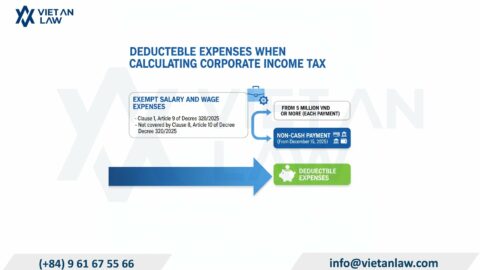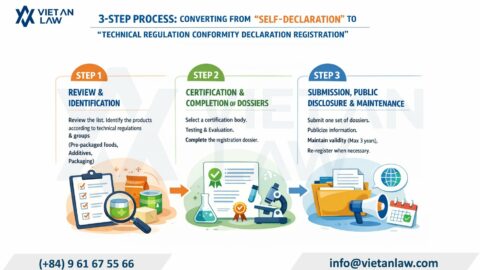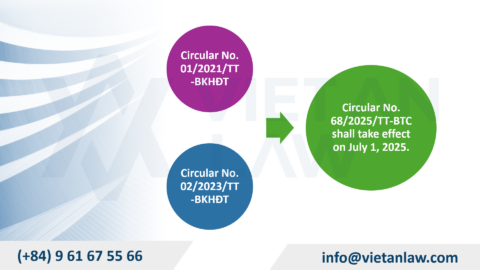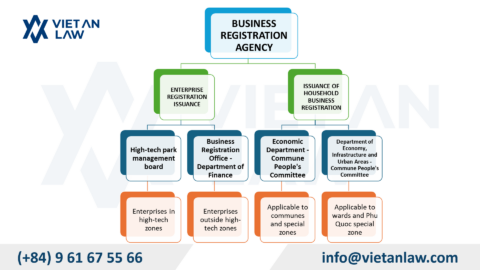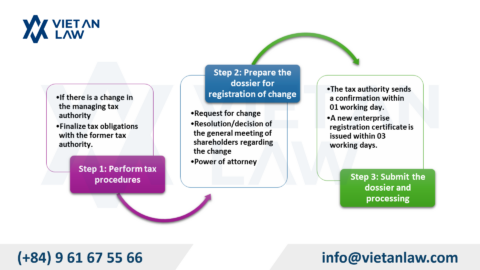On November 26, 2024, the Vietnamese National Assembly passed the Law on Value Added Tax 2024 (replacing the Law on Value Added Tax 2008). This law will take effect from July 1, 2025. Accordingly, many important regulations on VAT will change according to the Law on Value Added Tax 2024, directly affecting enterprises and consumers. In the following article, Viet An Law will update some notable new points in the new Vietnam valued added tax law from July 1, 2025.
Table of contents
Article 5, Law on Value Added Tax 2024 adjusts the regulations on goods and services not subject to VAT in Article 5, Law on Value Added Tax 2008 as follows:
Omit some goods and services not subject to VAT according to the provisions of the Law on Value Added Tax 2008, including:
Exported goods are resources and minerals that have been mined and processed into other products that are not subject to VAT and must comply with the List prescribed by the Government. Previously, according to Law on Value Added Tax 2008, goods exported for processing, including natural resources, minerals and products of which the total value of natural resources and minerals used, plus costs of energy consumed, for manufacture, accounts for at least 51% of the product cost, are exempt from VAT.
In addition, the amendment clearly defines a number of groups of goods and services to be consistent with specialized laws, avoiding difficulties in implementation such as securities trading, derivative products, defense and security products,…
Previously, according to Article 7, Law on Value Added Tax 2008: For imported goods, the taxable price is the border-gate import price plus import tax (if any), excise tax (if any), and environmental protection tax (if any). The border-gate import price shall be determined under regulations on prices for calculating import tax.
New regulations on taxable prices for imports from July 1, 2025, will be implemented according to Article 7, Law on Value Added Tax 2024, specifically:
The amended taxable price for imports is Taxable prices of imports are dutiable value (values on which import duty is charged) as prescribed by regulations of law on export and import duties plus import duty plus extra import duties as prescribed by law (if any), plus excise duty (if any) plus environment protection tax (if any).
This change aims to clarify the components of taxable prices, ensuring consistency with regulations on export and import taxes.
Article 9, Law on Value Added Tax has adjusted tax rates of certain goods and services, specifically:
In addition, supplement the principle of applying tax rates in cases where business establishments trade many types of goods and services with different VAT rates or in cases where agricultural products are used as animal feed or medicinal materials to ensure consistent application and avoid different interpretations.
According to Clause 2, Article 14, Law on Value Added Tax 2024, the requirements for deduction of input VAT deduction as follows:
In the meantime, according to the old regulations in Clause 2, Article 12, Law on Value Added Tax 2008, the requirements for the deduction of input VAT deduction as follows:
Therefore, if the Law on Value Added Tax 2008 allows tax deductions for transactions under 20 million VND even if paid in cash, Law on Value Added Tax 2024, effective from July 1, 2025, requires “non-cash payment documents” if one wants to deduct input VAT.
In addition, the new regulation has added a number of documents that are deductible for input VAT. According to Clause 2, Article 14, Law on Value Added Tax 2024, for exported goods and services, packing list, bill of lading, goods insurance documents (if any), except for some special cases as prescribed by the Government, input VAT is deductible.
According to Clause 25, Article 5, Law on Value Added Tax 2024, goods and services manufactured or sold by business households and individuals that earn annual revenue of at least 200 million VND are not subject to VAT.
Therefore, the Law on Value Added Tax has raised the threshold for VAT taxable revenue of business households and individuals from 100 to 200 million VND. From January 1, 2026, business households and individuals with annual revenue of 200 million VND or more will have to pay VAT.
An important new point that helps enterprises be more proactive in adjusting tax declarations is detailed guidance on incorrect or incomplete input VAT declarations at Point d, Clause 1, Article 14, Law on Value Added Tax 2024:
This regulation is clearer than before, helping businesses avoid legal risks when self-detecting and correcting errors.
To support cash flow for businesses, Article 15, Law on Value Added Tax 2024 has added a new case of tax refund:
In addition, clear regulations are needed to avoid difficulties in implementing VAT refunds for investment projects; VAT refunds for exported goods and services; and no VAT refunds for investment projects of business establishments in conditional investment and business sectors when they do not meet all business conditions as prescribed by the law on investment or do not ensure that they maintain sufficient business conditions during operation.
An important new point in Article 7, Law on Value Added Tax 2024, is the supplement of regulations on taxable price for promotional goods and services: VAT on promotional goods and services prescribed by regulations of law on commerce shall be 0 (zero).
This helps businesses reduce their tax burden when running valid promotions.
This is the updated regulation of the new Vietnam valued added tax law from July 1, 2025. If you have any related questions or need tax law advice, please contact Viet An Law for the best advice and support!
